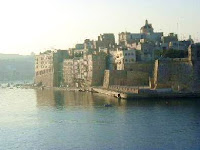
In Chapter Three Smith discusses, by way of many apt examples, the various influences on the size of trading stations. He looks at different areas in the world, such as the coasts around Africa, Asia and the Mediteranean, to illustrate how the particular features of a geographical landscape, with special focus on waterways and coastlines, influence the agricultural trading and other trading of that area. The Mediteranean sea, with its temperate weather, calm seas and textured coastline lends itself to the establishment of several ports. This, to quite a large degree, gave rise to the successful economic growth of Europe, according to Smith.
But the conceptual link between the size and frequency of trade centres only has bearing on the success of an economy via the notion of differentiation and specialisation. Thus, the central point of the chapter is not that geography has everything to do with how places of trade develop, but rather that if a trading centre, or market place is not adequately large it cannot support the ever important criterion for a healthy economy- specialisation.
It seems to be key, when reading Adam Smith, to bear in mind, at all times, that The Wealth of Nations offers a case for something like a fair and just society. His arguments seem always to be aimed at persuading the reader that healthy, successful and sustainable (to borrow from more current terminology) economies are ones which are egalitarian at their very foundations. Even when he is not stating this overtly the objectives are covert and made explicit again, when necessary, to drive home the point.
The tenet, for his overall argument- the book, which this chapter raises and defends is, therefore, that unless a reasonably large amount of people are living and working in close proximity to each other then specialisation will be impossible. This is for the obvious reason that, unless there is someone who is fulfilling a particular function within a community then someone else must do this. So, by way of example, if a community does not have someone who is a weaver then someone else, whose first choice and practice is not weaving will have to fulfill this function. Thus diluting his skills and productivity by forcing him to do too many things. A larger population, comprising a great variation of skills strengthens the trading potential of that community.
Which Smith, no doubt, holds as better for the survival of that economy and the further development of that community.

No comments:
Post a Comment